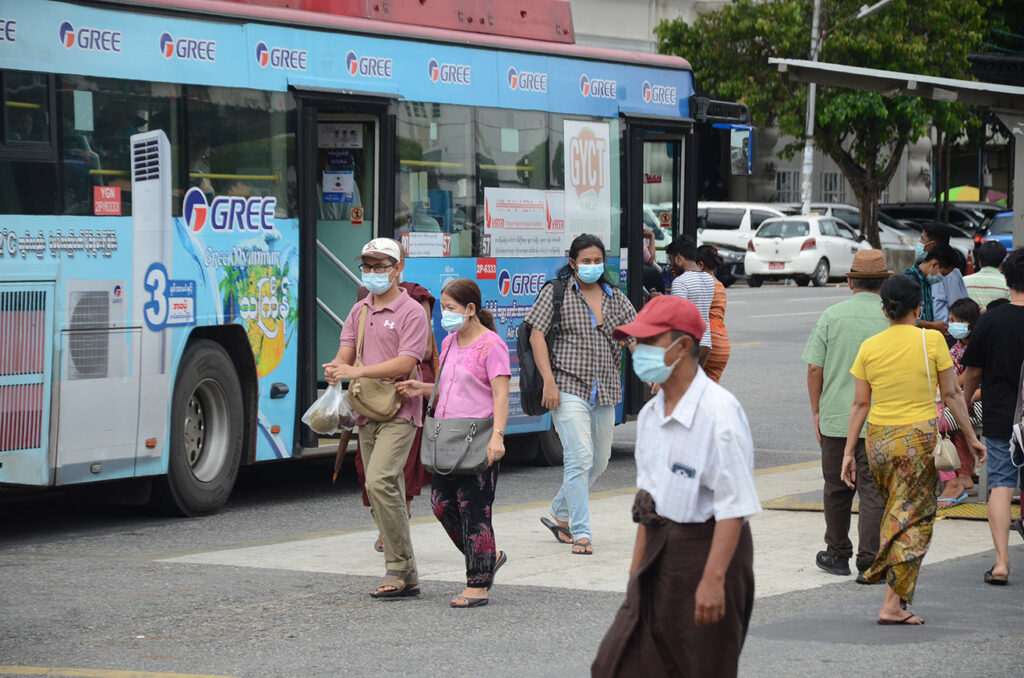13 Jan
With universal access to COVID-19 vaccinations in Myanmar still months away, Myanmar is entering a new phase. Keeping the number of new infections limited depends for a large part on how successful the Government will be in persuading citizens to stick to proper protective behaviour in the “new normal”.
From a public health perspective one could argue that the Government of Myanmar’s approach to COVID-19 has been a resounding success. After the first COVID-19 case in the country was discovered, in late March 2020, a set of measures was implemented that kept people at home, and that restricted domestic and international travel. As a result, the number of cases and fatalities was kept so low, that the term “first wave” was almost an exaggeration.
After a brief opening up of the country during the early monsoon months the picture became much bleaker, though. The number of infections accelerated to over a thousand per day, and the death toll rose from a handful to over two and a half thousand in late December 2020, forcing the Government to reinstate restriction aimed at controlling the spread of the virus and to prevent the potential collapse of the public health system.
Nonetheless, the “second wave” figures were still only a fraction of the impact COVID-19 has had in Western countries like Italy, the UK, and the Unites States. Furthermore, the number of new cases declined in late December, 2020, and early January, 2021.
With many people having been hit by economical woe because of the restrictions, a return to normal is eagerly awaited. But Myanmar is not out of the woods yet. A new strain of very infectious COVID-19 has been discovered in England, and has spread to a handful of other countries. It is likely that the new strain will rear its ugly head in Myanmar as well.
With regards to vaccinations patience will be the key word. Developed countries have bought up vaccines in bulk, leaving developing countries like Myanmar at the end of the line. The Ministry of Planning, Finance, and Industry (MOPFI) is in talks with international organizations like IMF, ADB and World Bank to obtain financial assistance and establish a COVID-19 Vaccine Fund. The Government seeks almost a billion US dollars in support, to finance the acquisition and distribution of vaccines. On December 7, Myanmar submitted a request to the COVAX program at the World Health Organization (WHO) and the Global Alliance for Vaccines and Immunization, which aims to ensure COVID-19 vaccines reach the world’s poor.
The Government has bought 30 million vaccine doses from India, that will arrive in Myanmar end of February. That does not mean that the whole population will have access to vaccines right away. There’s limited supply and health workers and the most vulnerable will be vaccinated first. It is likely that it will take until 2022 for the rest of the population to get access to vaccines. That means that COVID-19 will make a comeback in the rainy season of 2021, Myanmar’s traditional flu season.
With universal vaccinations still months away and the country facing at least one more “COVID-19” season, it will remain to be important to exercise proper protective behavior: wearing a mask, washing hands, watching your distance, and avoiding crowded situations as much as possible.
In the “new normal” situation, these behaviours should become regular habit. To facilitate this, building of awareness and stimulating behavioural change is key. The People’s Health Foundation supported the Ministry of Health and Sports by running a second “Let’s Beat COVID Together” mass media campaign in the last quarter of 2020. In the first half of January 2021 we will follow up with another COVID-19 public awareness campaign, focused on urban audiences in Yangon.
Only if we stick to protective behaviour that we know can greatly reduce infection risks, can we save lives and prevent the public health system from getting overloaded.
Dr Than Sein and Dr Thein Swe are the President and Vice-President of the People’s Health Foundation, a non-government organization that strives to contribute to health care services provision and health education in Myanmar.
By Dr Than Sein & Dr Thein Swe



